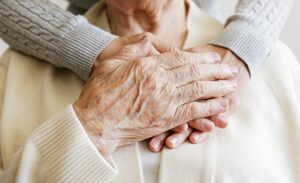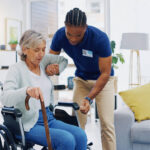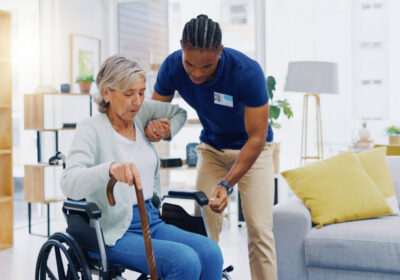
Lifestyle Changes For Seniors With Bowel Incontinence
Understanding Bowel Incontinence In Seniors
Bowel incontinence (fecal incontinence) is indeed a significant issue for many seniors, impacting their quality of life in various ways. Addressing this condition’s physical and emotional aspects is crucial to ensure comprehensive care and support. If you have any specific questions or need information on management strategies for bowel incontinence, contact us.
Common Causes And Risk Factors Of Bowel Incontinence
Bowel incontinence in seniors can be attributed to several key factors:
- Natural Aging: Weakening of pelvic floor muscles and decreased anal sphincter tone.
- Medical Conditions: Neurological disorders, diabetes, stroke, and chronic constipation can disrupt bowel function.
- Other Risk Factors: Obesity, pregnancy, and certain medications (like antidepressants and opioids) also contribute.
Awareness and collaboration with healthcare providers are crucial for addressing these factors and developing effective management strategies.
The Impact Of Bowel Incontinence On Seniors’ Quality Of Life
Bowel incontinence, treated at the Northwest Continence Center, profoundly impacts seniors’ physical, emotional, and social well-being. It erodes self-confidence, restricts social engagement, and complicates daily independence and hygiene. The financial burdens of specialized products and medical care further strain seniors and their families. A comprehensive approach is vital to enhance seniors’ overall quality of life.

Dietary Modifications For Seniors With Bowel Incontinence
One effective strategy for managing bowel incontinence in seniors is dietary modification, focusing on nutrition and hydration to regulate bowel function.
- Increase Fiber Intake: Seniors should consume fiber-rich foods like whole grains, fruits, vegetables, and legumes to add bulk to stool and prevent constipation. Aim for 25-30 grams of fiber daily, gradually increasing intake.
- Stay Hydrated: Drink plenty of water throughout the day to prevent dehydration, which can lead to hard, dry stools. Aim for at least 8 cups (64 ounces) daily, adjusting based on individual needs.
- Moderate Laxative Foods: Avoid caffeine, alcohol, and fruits and vegetables with laxative effects. Consume them in moderation to avoid triggering incontinence episodes.
These adjustments can help seniors manage bowel incontinence effectively, promoting better bowel control and overall well-being.
Physical Activity And Exercises For Improving Bowel Control
In addition to dietary changes, regular physical activity and targeted exercises can help manage bowel incontinence in seniors:
- Pelvic Floor Exercises (Kegels): Strengthening these muscles improves bowel control. Seniors should learn proper techniques from healthcare professionals and do these exercises daily.
- Walking: Regular moderate-intensity walking stimulates digestion, promotes regular bowel movements, and boosts cardiovascular health. Seniors should aim for at least 30 minutes daily, increasing intensity gradually.
- Low-Impact Activities: Swimming, yoga, and tai chi improve flexibility, balance, and overall physical function and support better bowel control. Seniors should consult healthcare providers to tailor an exercise plan to their needs.
These steps can empower seniors to manage bowel incontinence effectively, promoting better bowel function and overall well-being.
Medications And Treatments For Bowel Incontinence
Lifestyle changes are crucial for managing bowel incontinence in seniors. Additional support through medications and treatments, such as consulting healthcare providers at Alpenglow Homecare: https://alpenglowcares.com/, can also be beneficial. Common medicines like loperamide or diphenoxylate help control bowel movements under medical supervision. Biofeedback therapy and pelvic floor physical therapy effectively strengthen pelvic floor muscles, which is particularly beneficial when muscle weakness contributes to incontinence. Surgical options such as sacral nerve stimulator implants or anal sphincter repair are considered for severe cases following thorough discussions of risks and benefits with healthcare providers.
Assistive Devices And Products For Seniors With Bowel Incontinence
In addition to lifestyle changes and medical treatments, various assistive devices and products can help seniors manage bowel incontinence and maintain their quality of life.
Absorbent pads or undergarments are commonly used to contain leakage, offering seniors confidence and comfort throughout the day. With guidance from healthcare providers, finding the right fit and absorbency level is essential.
Portable commodes provide convenience for seniors with difficulty accessing traditional toilets, particularly those with mobility challenges. Choosing a commode that is stable and easy to use is essential.
Barrier creams or ointments help protect the skin from irritation and maintain skin health amidst frequent incontinence episodes. Healthcare providers can recommend suitable products based on individual needs.
These products are crucial in enhancing comfort and dignity for seniors managing bowel incontinence, supporting their independence and overall well-being.
Emotional Support And Coping Strategies For Seniors With Bowel Incontinence
Addressing the emotional impact of bowel incontinence is crucial for seniors’ well-being. They may experience feelings of embarrassment, anxiety, or loss of confidence. It is essential to seek support from healthcare providers, family, and friends. Joining support groups can also provide valuable connections with others in similar situations.
Developing coping strategies, such as relaxation techniques and engaging in enjoyable activities, helps reduce stress and maintain a sense of purpose. Advocating for their needs, such as requesting accommodations from healthcare providers and caregivers, empowers seniors to maintain independence and dignity.
These steps are essential for seniors to manage the emotional challenges of bowel incontinence and lead fulfilling lives.
Conclusion: Empowering Seniors To Live A Fulfilling Life With Bowel Incontinence
Bowel incontinence is common among seniors and can significantly impact their quality of life. Seniors can regain control and independence through lifestyle changes, medical interventions, and emotional support.
Dietary adjustments, physical activity, and targeted exercises help manage the physical aspects of bowel incontinence. Medications, treatments, and assistive devices provide practical solutions for daily living.
Addressing the emotional impact is crucial. Seeking support, developing coping strategies, and advocating for needs enhance self-worth and overall well-being. Empowering seniors to manage their care actively helps them thrive and confidently enjoy their golden years.
















